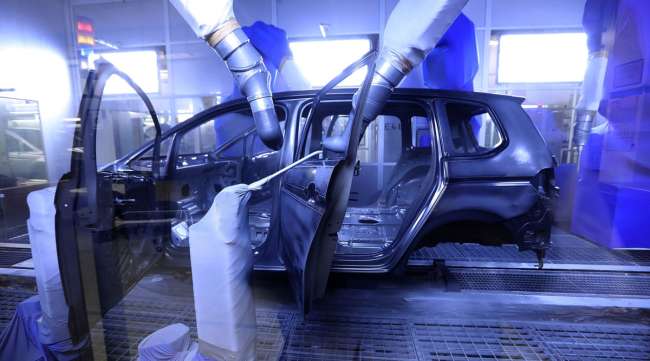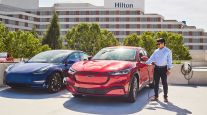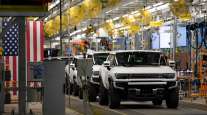VW, Ford Forge Ahead With EV Technology Sharing to Cut Costs

[Ensure you have all the info you need in these unprecedented times. Subscribe now.]
Volkswagen AG and Ford Motor Co. are pushing ahead with plans to team up on electric- and self-driving vehicles even as the coronavirus derails other projects, according to people familiar with the matter.
The deal is expected to close by the end of June, with both sides recognizing a need to share the large investments needed to develop battery-powered and autonomous cars, said the people, who asked not to be identified as the talks are private.
The talks with Ford are “progressing well,” a VW spokesman said by phone, without giving further details. Alan Hall, a representative of Ford’s autonomous-car partner Argo AI LLC, said the plan is on track to close in the second quarter. Ford said separately it expects the same.
With the global pandemic bringing the automotive industry to its knees, both companies are keener than ever to move beyond an initial landmark agreement to join forces on light commercial vehicles and mid-sized pickups. Manufacturers have been forced to rein in spending amid falling demand for cars, and sharing ballooning expenses for new technology can help ease the financial burden.
Under the plan, VW will invest about $2.6 billion in Argo. That includes $1 billion in funding and the $1.6 billion Autonomous Intelligent Driving unit of the German company’s Audi brand to create a bigger player to compete against Alphabet Inc.’s Waymo and General Motors Co.’s Cruise unit.
VW’s investment in Argo remains on track for the first half, Ford said in a statement.
Ford’s go-it-alone strategy had begun to stutter amid the viral outbreak, with a multi-city commercial rollout of robotaxis and driverless delivery pods in the U.S. delayed until 2022. The company said it needed more time to assess the impact of the coronavirus pandemic on consumer attitudes toward self-driving and shared vehicles.
As part of the widened cooperation, Ford intends to produce at least one mass-market car in Europe based on VW’s main electric-vehicle underpinnings, dubbed MEB, with more than 600,000 targeted deliveries. VW’s first car based on the new technology, the ID.3 hatchback, will be rolled out this summer. The SUV sibling ID.4 is set to follow later this year.
Want more news? Listen to today's daily briefing:
Subscribe: Apple Podcasts | Spotify | Amazon Alexa | Google Assistant | More




